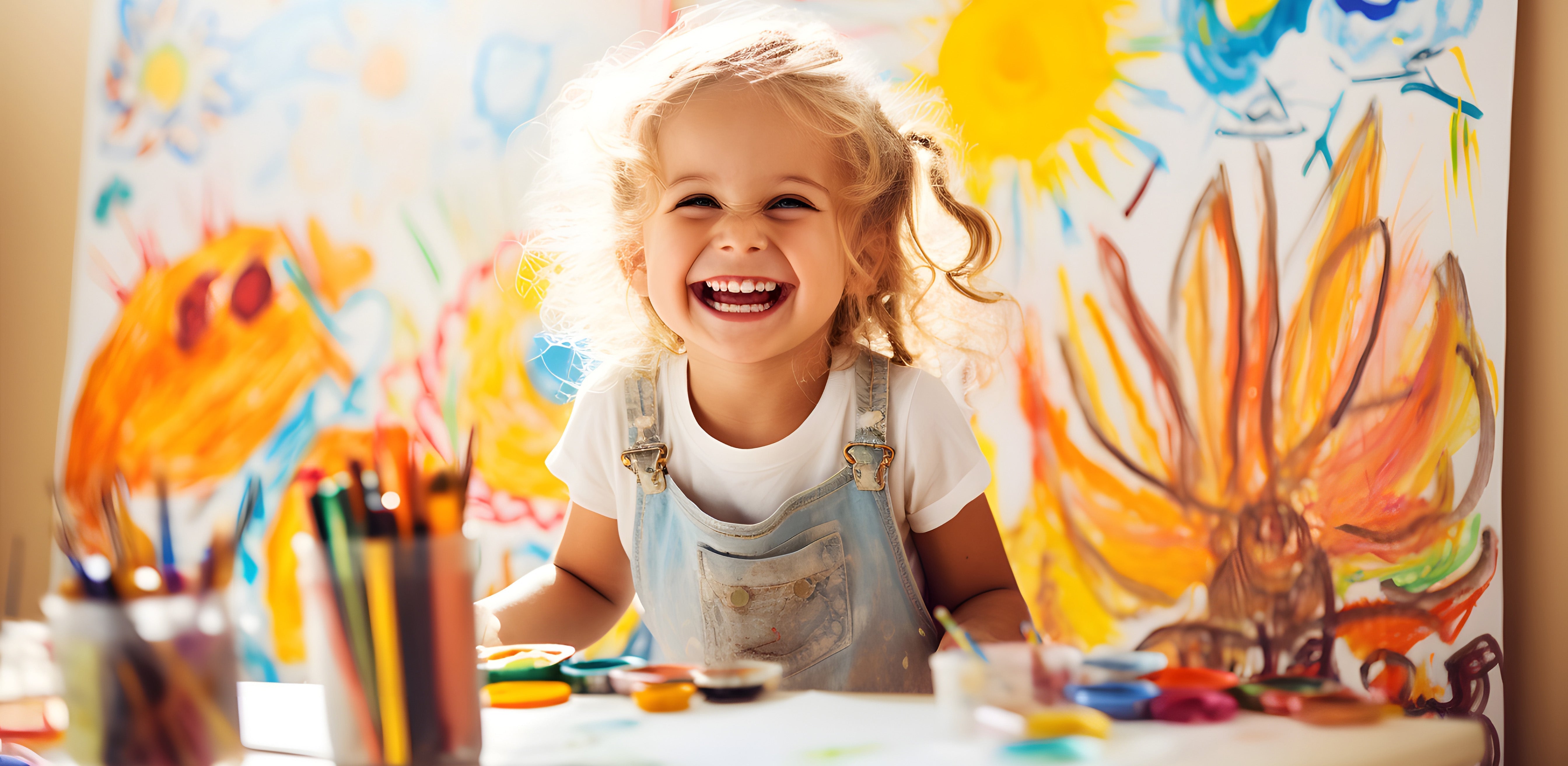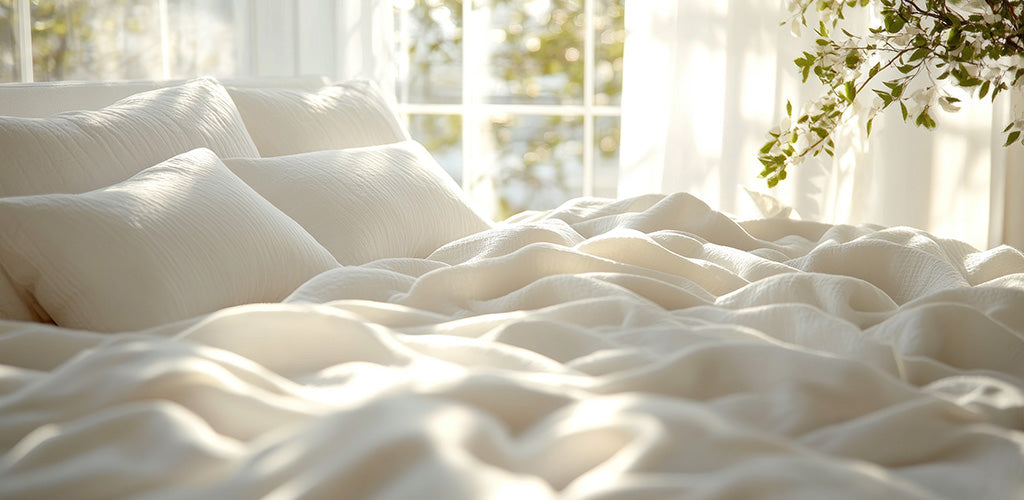
Does sleep improves creativity?
Creativity is the key to innovative ideas and problem solutions. It helps us to win new perspectives and to organize our thoughts in a unique way. But how exactly does creativity arise and how does sleep affect this process? In this article we illuminate how sleep promotes our creativity, which sleep phases are particularly important and how lack of sleep can affect our impairment.
Table of contents
- Creativity and sleep
- The decisive sleep phases
- The influence of sleep on creativity
- harms a lack of sleep of creativity?
- sleep tips that promote creativity
- FAZIT
1. Creativity and sleep
Creativity is a multi -layered process that goes far beyond mere “creative thinking”. It includes the ability to develop new ideas, to combine existing concepts and to solve problems in an unusual way. There are different forms of creativity, such as the "explosive" creativity that leads to groundbreaking ideas, or the "incremental" creativity that focuses on minor improvements and changes.
In order to promote creativity, it is important that our brain starts both "conscious" and "unconscious" processes. The conscious part refers to the analytical and targeted problem solving, while the unconscious part often takes place in the background work, for example when it turns out or - as it turns out - when sleeping.
Sleep plays a key role by allowing our brain to process and re -combine ideas. When we sleep, our brain not only sorts the information that we have recorded during the day, but also creates new connections between this information. This process can lead to creative solutions that would not have occurred to us when we woke up. Studies show that Sufficient sleep can promote the creative process of thinking enormously because sleep allows the brain to access unconscious resources.
2. The decisive sleep phases
sleep is much more than simply a phase of relaxation. As we sleep, we go through several sleep phases, which fulfill different functions. In particular, deep sleep and the rem-sleep are of particular importance for the promotion of creative processes.
-
REM sleep (Rapid Eye Movement): This phase of sleep is characterized by quick eye movements and a particularly high brain activity. In REM sleep, the brain waves are similar to those in the awake and the brain is very active. Studies have shown that our brain processes information in this phase, Memorial content sorted and unconscious connections that often cause creative ideas and solutions.
An interesting study by Walker and Stickgold (2006) showed that people who sleep after a creative task tackle the task after waking up with more creative solutions. REM sleep therefore seems to be directly involved in the development of creative ideas. The daydreaming, which often occurs in the transition phases to sleep, can stimulate creative processes, as it enables our brain to access new associations and ideas.
-
deep sleep: The deep sleep (also called slow-wave
Sleep ) is the phase in which the body and brain regenerate the most.Not only physical repairs are carried out here, but also many important cognitive processes - in particular the consolidation of memories and the solidification of learned skills. A study by Mednick et al. (2003) found that participants who had a night of sleep after a creative task showed better performance when solving creative tasks than those who stayed awake. This indicates that deep sleep is not only important for memory, but also for the development and use of creative skills.
Both phases-REM sleep and deep sleep-therefore play an important role in the processing and consolidation of information that is necessary for creative insights.
3. Does sleep improves creativity?
The question of whether sleep actually improves creativity has been examined in numerous scientific studies, and the results are clear. Sleep has the potential to increase our creative performance - and that in different ways.
-
Memory and problem -solving ability: Sleep not only helps to store information, but also to bring it into new connections. The brain sorts out information in sleep and filters unnecessary data while it also creates creative connections between important content. This process can lead to solutions that we have not considered when we wake up.
-
solve problems: A well-known example of the creative benefit of sleep is the phenomenon of the "aha moment". When people overcome a creative blockade, it often happens after a sleep phase. The researchers Cai et al. (2009) found that participants who had a night of sleep after learning a new concept developed creative solutions that had not previously occurred to them. Sleep enables the brain to access unconscious thought patterns and find creative solutions.
In this context, one can say that sleep is not only a phase of regeneration, but also a phase of active problem solving and creative further development.
4. Harms a lack of sleep of creativity?
While sufficient sleep promotes creativity, lack of sleep can significantly affect it. A chronic lack of sleep leads to a variety of cognitive and emotional restrictions that reduce our creative performance.

-
reduced cognitive flexibility: If we don't sleep enough, the brain's ability is limited to react flexibly to new ideas or solutions. Bowers and Co. (2013) found that lack of sleep reduces the divergence of thinking, which means that the ability to develop several solutions into a problem is reduced. As a result, it is more difficult to think creatively and find innovative solutions.
-
Problem loss impaired: Studies show that lack of sleep reduces the ability to solve problems. People who suffer from lack of sleep are difficult to get new ideas and recognize patterns. Instead, they often remain in the usual thinking structures and are less able to leave leaked paths.
-
Emotional effects: Lack of sleep not only leads to cognitive problems, but also influences our emotions.A sleepy brain often reacts more to stress and negative feelings, which can also block creative thinking. In this state it is more difficult to get a creative solution because the spirit is in a state of frustration or exhaustion.
5. Sleep tips that promote creativity
To increase your creativity through sleep, there are some simple strategies that you can integrate into your everyday life:
- Care for sufficient sleep: Attempts to get 7 to 9 hours of sleep every night. This is the only way to optimally regenerate your brain and make creative connections. If you regularly sleep too little, your creativity will be restricted in the long term.
- Thinking before going to bed: If you work on a creative task, it can be helpful to reflect the problem before going to bed. Your brain will then continue to work on solutions during sleep. Write down your thoughts or sketch ideas before you go to bed so that your brain goes to sleep with clear tasks.
- Use the morning hours for creative tasks: Awakening immediately after the your brain is particularly receptive to creative thoughts. Use this time to sketch ideas or to rethink tasks that have been difficult for you the day before.
- Install Power-Naps: A short nap of about 20 minutes can increase your creative performance without disturbing your sleep cycle . Naps are an excellent way to refresh the mind and overcome creative blockages.
- Use Use creativity techniques: Techniques such as brainstorming, mind mapping or the "reverse thinking" method can help you to promote your creative thinking processes. If you regularly use such techniques, your brain will better create creative connections.
- Create optimal sleeping environment: A calm and comfortable Sleeping environment is crucial for relaxing sleep. Make sure your bedroom is dark, calm and cool. Also a regular bedtime helps to stabilize your sleep rhythm.
- Reflect memory and tasks: Repeat important information or tasks before going to bed. Your brain will work on this information while sleeping and develop new ideas. This not only promotes memory, but also creative insights.
6. Conclusion
summarized can be said that sleep plays an important role in creativity:
- Sleep promotes creative processes: REM and deep sleep help to develop creative ideas and find problem solutions.
- Lack of sleep inhibits creativity: Lack of sleep leads to a reduced cognitive flexibility and reduces the ability to find creative solutions.
- Creativity can be improved by targeted sleep: Pay attention to sufficient sleep, reflecting creative tasks before going to bed and use the first hours after waking up for creative activities.
- Good sleeping habits are crucial: A relaxing sleeping environment and regular sleep times help you fall asleep and creative.
Sleep is more than just relaxation - it is an important part of creative processes. With the right sleeping habits you can maximize your creative performance and develop new ideas.


Leave a comment
This site is protected by hCaptcha and the hCaptcha Privacy Policy and Terms of Service apply.